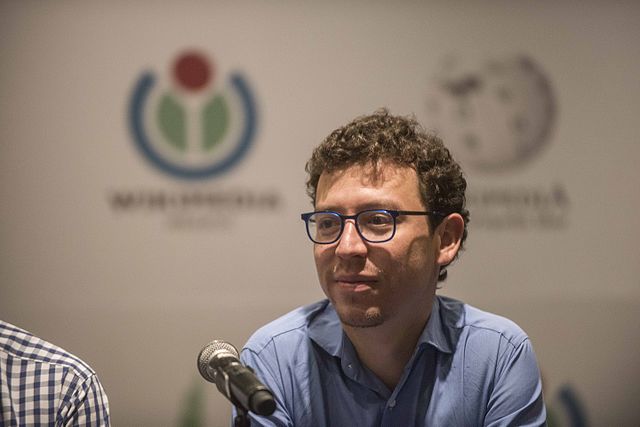
CAMBRIDGE, Mass. — Luis von Ahn, the 40-year-old co-founder and CEO of popular language-learning app Duolingo, says one of the challenges of seeing his business grow is having to let go of doing everything. Motivating people and trusting them become important, he says.
The Pittsburgh-based startup employs 150 people and has grown rapidly since its 2014 launch. It had more than $40 million in revenue this year and boasts 300 million users worldwide.
Von Ahn spoke with The Associated Press after winning the prestigious Lemelson-MIT Prize for inventors who’ve made a positive social impact. The interview has been edited for length and clarity.
Q: How did you learn how to manage people as Duolingo grew?
A: This is probably the toughest thing I’ve done. As a professor I spent most of my time coming up with inventions or new products. With Duolingo it’s been a shift. Over time, you get to a point where you don’t know everybody’s name. You’re not even talking directly to the people who are doing the stuff. It’s about learning how to motivate and direct a large group of very intelligent people. Usually intelligent people have their own will, their own ideas. It’s a balance between letting them innovate by themselves, but also everybody pointing in the same direction.
Q: How’d you figure it out?
A: Most of it was through trial and error. My approach to most things in life is, “OK, we’re going to try this, as long as you know what the success condition is.” What’s failure, what’s success? As long as you’re pretty good at that, you can try a lot of things. And as long as everyone you’re working with knows you have the company’s best interests in mind, they allow you to try things.
Q: How did you let go from being involved in everything?
A: It’s been very difficult. One of the reasons why Duolingo was successful early on was because I was very detail-oriented. I was on top of every single thing. It was psychologically difficult for me to let go. It was a tough realization when the product didn’t get any worse when I stopped being on top of it. But eventually you get through it because you have to. It is now literally impossible for me to be on top of everything we do. I just can’t. It’s available in multiple platforms, multiple languages. I can’t test everything myself.
Q: Is it any easier to grow a tech company in Pittsburgh than in San Francisco or New York?
A: Probably the biggest difference is the amount of time each person stays in the company. People come to Duolingo and very rarely leave. We have much less churn of employees. On the flip side, there’s just not that many people in the ecosystem. We put a billboard on U.S. 101 in San Francisco that says, “Own a home, work in tech, move to Pittsburgh.” We’ve gotten a ton of applicants.